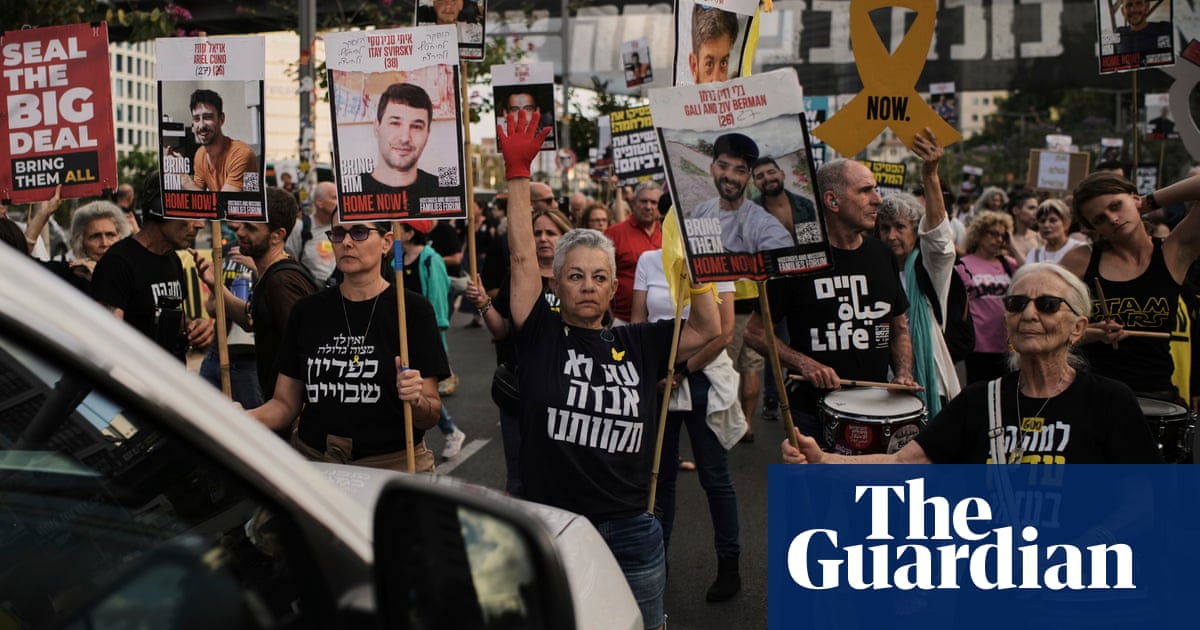Marking the 600th day of theIsrael-Gaza war, thousands of family members of Israeli hostages still held in Gaza have held protests across the country, blocking traffic and calling for a deal securing the release of their loved ones from captivity and an end to the conflict.
“600 days we are without our loved ones, 600 days that Hamas is holding them captive, and the bloody Israeli government is abandoning them to maintain the integrity of their coalition,” the families said in a statement read by Keith Siegel, a former hostage, at a rally in Tel Aviv on Wednesday.
“Our families have become the victims of cheap politics at the hands of the prime minister,” they said. “Instead of ending the war and bringing everyone home, he chose [finance minister Bezalel] Smotrich and [national security minister Itamar] Ben-Gvir, who prefer to occupy theGazaStrip than to save the hostages.”
The families of the hostages accused the prime minister,Benjamin Netanyahu, of “sentencing them to death” and called for his resignation.
‘‘After such a long time, the government needs to be sent home to bring the hostages back home,” they said.
Anat Angrest, whose sonMatan Angrestwas kidnapped by Hamas, said: “I want to turn here to every mother and father: imagine standing next to me, giving everything for the state and the homeland, but being abandoned and forgotten. It can unfortunately happen to every one of us.”
In a speech given at Hostages Square in Tel Aviv, Arbel Yehoud, a freed hostage, said: ‘‘The Israeli government stands before a single choice: saving lives or abandoning them.”
The October Council – made up of 1,500 families of Israelis who were killed or captured in the 7 October massacre – protested on Wednesday morning outside the residence of the Knesset speaker, Amir Ohana, in Tel Aviv. The protesters demanded earlier elections and the establishment of a state commission of inquiry.
The October Council submitted a bill proposal to Ohana, calling for a dissolution of the current Knesset. The proposal states that “the government has turned its back on the families” and accused the cabinet of “outright announcing that it will not investigate the greatest disaster the State of Israel has ever known”.
Sign up toFirst Edition
Our morning email breaks down the key stories of the day, telling you what’s happening and why it matters
after newsletter promotion
The Hostages and Missing Families Forum sent a letter to the head of the Israeli hostage negotiating team, Ron Dermer, demanding his resignation and saying that since his appointment to the position not a single hostage had returned due to his efforts.
A total of 251 people were taken hostage and about 1,200 killed byHamasin its cross-border attacks on 7 October 2023. Since then, Israel’s retaliatory campaign has killed more than 54,000 Palestinians, most of them civilians.
